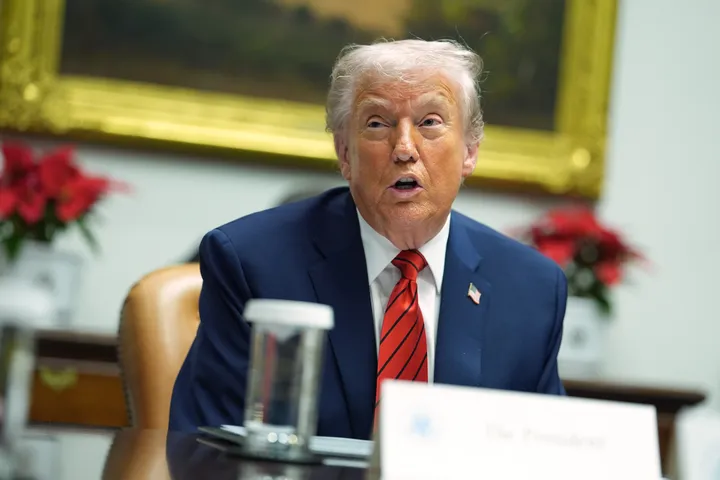For Rizakullah, taking money that belongs to Afghans to pay the families of 9/11 victims, while the country faces widespread hunger, is an act of atrocity.
A manual labourer from Kabul, Rizakullah asks why Afghans are being punished.
“I hardly make 100 Afghanis ($1) a day. I cannot even buy enough plain bread to feed my family,” the 35-year-old told TRT World.
“We are isolated from the rest of the world and getting punished for a crime we have not committed."
On February 11, US President Joe Biden signed an order to free $7 billion in Afghan assets now frozen in the US, splitting Afghans' money between the 9/11 victims and humanitarian aid for Afghanistan.
The $3.5 billion has been set aside for a US court to decide whether it can be used to settle claims by families of the victims.
The move will bankrupt Afghanistan’s central bank and throw the country into an economic catastrophe.
Wages have already fallen by up to 18 percent in the past year, according to the World Bank.
By mid-year, the International Labour Organization projected job losses of about 900,000 - a contraction of about 14 percent.
The US sanctions on the country since the Taliban took over in August have also impeded aid organizations' efforts to help people in the country.
The Taliban reacted to Biden’s decision saying the reserve belongs to the people of Afghanistan and that the US should reverse its decision.
“Reserve of Da Afghanistan Bank does not belong to governments or factions but it is property of the people of Afghanistan. It is only used for implementation of monetary policy, facilitation of trade and boosting of financial system of the country,” Taliban spokesperson Suhail Shaheen said on Twitter.
“It’s freezing or disbursement unilaterally for any other purpose is injustice and not acceptable to the people of Afghanistan.”
Nasir Khan fled from Khogyani district of Nangarhar to Kabul eight years ago due to the fighting between the Taliban and the US-backed Afghan security forces.
He worked as a daily-wage construction worker in Kabul, but has not been able to find work since August.
“This money belongs to us, if we don’t get it, we will continue to suffer,” he said.
In 2010, about 150 family members of those who were killed on 9/11 sued several targets, including Al Qaeda and the Taliban for facilitating and planning the attack.
The families won default judgments against Al Qaeda and the Taliban but were unable to collect any money.
As the Taliban are back in power, the families will now have the opportunity to sue for access to the frozen Afghan assets.
Afghans did not elect the Taliban. The group surged back to power, fighting the US-led foreign and Afghan forces, two decades after they were toppled in 2001.
Analysts and rights groups warn that the $3.5 billion set aside for humanitarian aid won’t be of any help to improve the situation in the country unless the economy of the country is resuscitated.
“Directing $3.5 billion to humanitarian assistance for Afghans may sound generous, but it should be remembered that the entire $7 billion already legally belonged to the Afghan people,” Human Rights Watch said in a statement last week.
Back in Kabul, Inzar Gul of Kapisa province, who is in search of work in Kabul, answered briefly when asked whether he knew about Biden’s decision.
“The world is watching as we are deprived of our basic rights: Food, education, jobs, healthcare. This war has destroyed us,” the 55-year-old told TRT World.
“What is our fault? What are we paying for?”
























